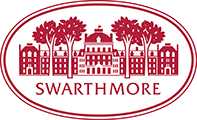Are your research computing demands overwhelming your computer? Symptoms may include deafening fan noise, overheating, and system slugishness while your code runs in the background. If so, Swarthmore ITS has you covered with high performance computing resources and training.
Strelka
Strelka is Swarthmore’s cluster computer that has a total of 360 computational nodes and 8 GPUs. We just added a new high memory node this month that helps to expand access to more users. Available for use by the entire campus community, we’ve seen usage by faculty and students in many departments. For more information and instructions on how to get an account, visit our Strelka help page.
XSEDE and Open Science Grid
If you need access to more resources than Strelka can provide or are looking for specialized hardware to run your code, ITS can get you set up with XSEDE and Open Science Grid. The Xtreme Science and Engineering Discovery Environment (XSEDE) is an NSF-funded consortium which supports a network of shared supercomputing resources housed at major U.S. research institutions. Through XSEDE, member institutions gain access to flexible pools of time on large supercomputers. If you have a large job that can be broken down into small, independent pieces, Open Science Grid (OSG) is a service that can provide quick results. More details are available on our High Performance Computing help page.
High Performance Computing Workshops
There are a number of free or low cost trainings available to Swarthmore community members.
Summer Programs
Cyberinfrastructure-Enabled Machine Learning Summer Institute (June, application due 4/23/21)
Computational Chemistry for Chemistry Educators Workshop (June)
San Diego Supercomputing Center Summer Institute (August)
Recorded High Performance Computing Trainings
Recordings are available for a wide range of topics including cloud computing, code profiling and improvement, parallel computing, and visualization through XSEDE’s on demand training page.
Questions? Curious? Get in touch!
Let us know what your needs are and we’ll figure out how to get you the computational resources for your research. Get in touch with Andrew Ruether (aruethe2) to learn more.
Overheated Computer image by Kjell Eson

